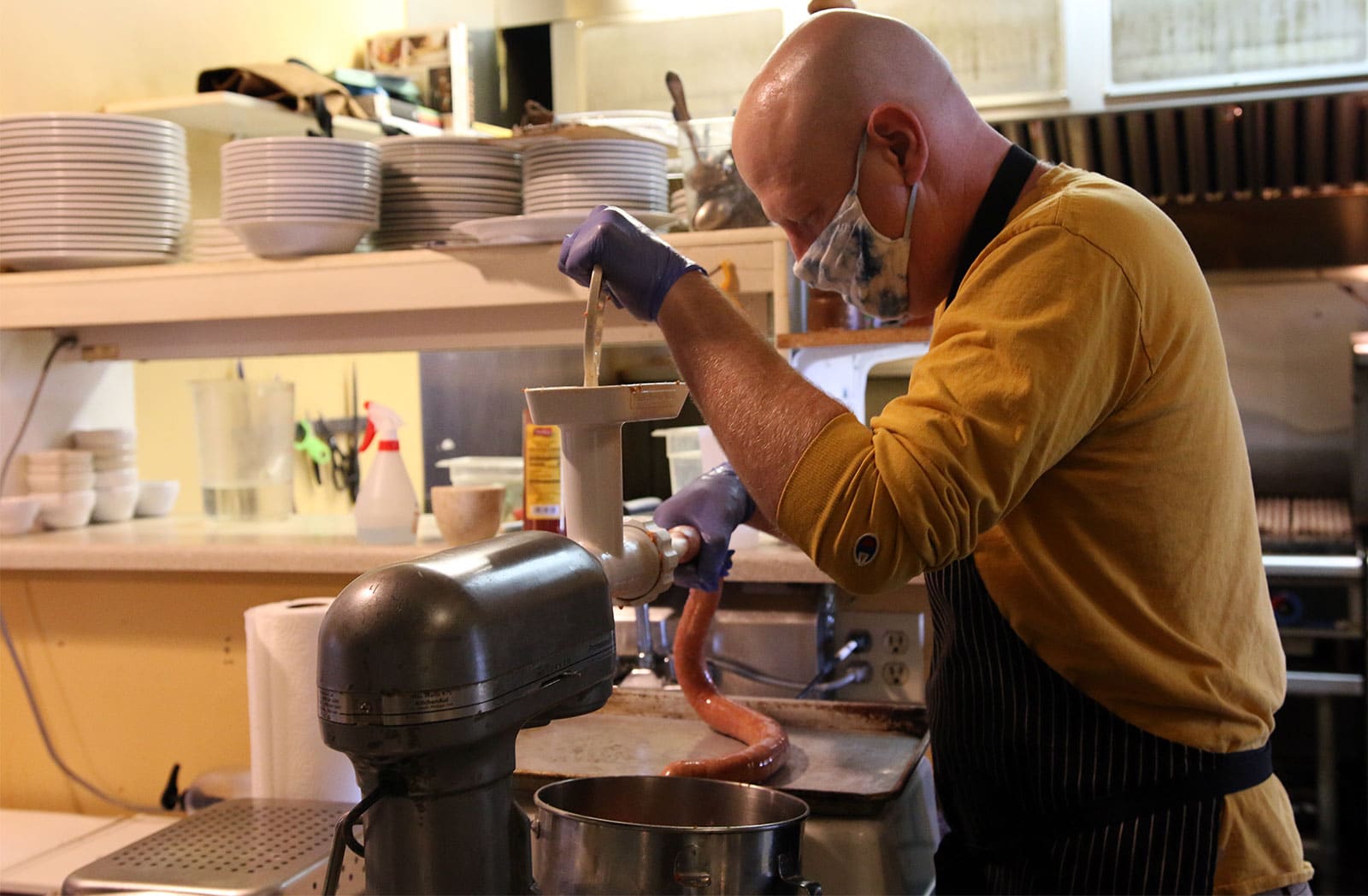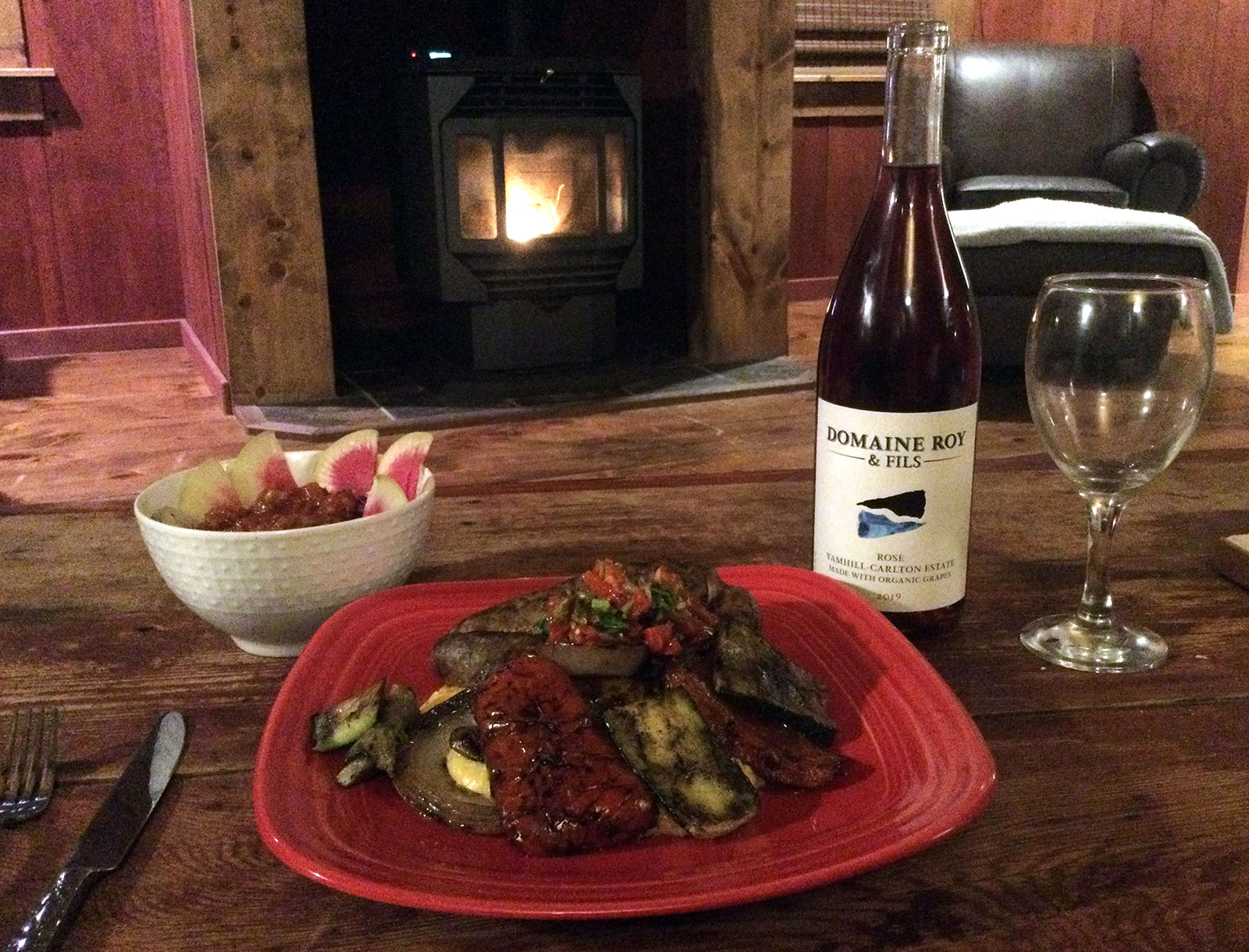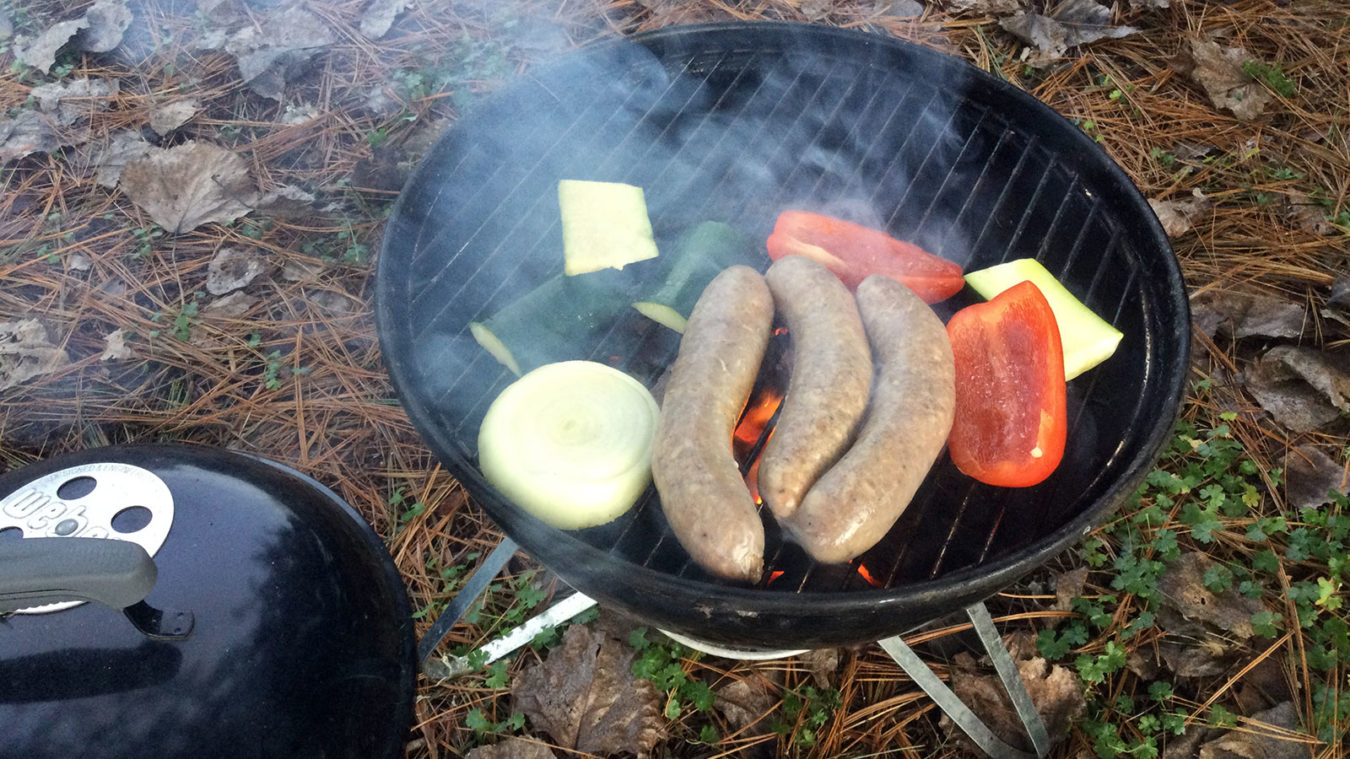Many of our traditions have had to take a back seat during this time of travel restrictions and social distancing. Coho Restaurant was approached by a customer who, due to the constraints the pandemic has brought on us all, was not able to partake in a food tradition that was always a part of the family’s holiday season: traditional Hungarian sausage. They provided their family recipe and we ground and cased the sausage for them so that they could enjoy this taste of home.
It was a joy to help and educational to go through the process, as this is not something we do on a regular basis at the restaurant. The recipe and process are described below. I have updated the recipe originally provided to fit my tastes – I like them a bit more spiked with spice – and I encourage you to do the same. Everyone has their own flavor preferences!

Pork is generically listed below. It is important to use pork that has fat. The perfect cut to use is pork butt. You would not need to add additional fat. If you use leaner cuts – pork leg, for example – add 4 oz of pork fatback per 2 lbs. of lean pork.
The spices included are generic and provide a middle of the road spice level. You can adjust the spice by reducing the black or cayenne pepper.
The liquid is very important in this recipe as that, along with the fat, provides the moisture for the sausage. Since sausage should be cooked all the way through (165° F), this will help prevent the sausage from drying out as it cooks.
This recipe makes a great deal of sausage, so there will be plenty to freeze. I have listed casings as well. You do not have to case the sausage, as the process does take unique equipment. This recipe can be enjoyed as crumbled sausage as well. If you do not have a way to grind your own meat, you can buy plain ground pork to use. If you do decide to case the sausage, use pork casings which can be purchased through online butcher companies or through Amazon.
Meat grinder or the meat grinder attachment for your stand mixer
Sausage stuffer or the sausage stuffer attachment for your stand mixer
Recipe
10 lbs pork
2 Tbsp. black pepper
¼ c. paprika
1 Tbsp. cayenne pepper
¼ c. salt
12 garlic cloves, finely minced
1/3 c. apple cider or red wine vinegar
2 c. cold water
Casings for stuffing
Directions
1. Soak the casings in warm water. This is important to make them pliable for stuffing and to remove the salt they are packed in. You will also rinse the casings later.

2. Dice the pork into small-to-medium chunks. Be careful to remove any bone, cartilage, or sinew. These will not get effectively ground up during the process and are difficult to chew. Place the pork on a sheet pan in a single layer and freeze the chunks for 15 minutes. This will aid in the grinding process.
3. Remove the pork from the freezer and grind the pork. Once the meat is ground, place in a large container (large enough to mix in the remaining ingredients). Add the remaining ingredients (except the casings, of course). Mix with your hands – latex or rubber gloves will be handy for this – until everything is uniformly incorporated.
4. Heat a small sauté pan and cook a small amount of the sausage to make sure it tastes just the way you like it. Adjust with salt, spice, etc. as necessary.
5. Place ground and mixed sausage in the refrigerator while you prepare the casings. Rinse the casings in warm water and drain to ensure the salt is removed. Place a casing on your stuffer and begin stuffing the sausage. Once the sausage is stuffed, pinch and twist (alternating directions) in the size you desire. Also prick each link with a needle on both sides in two or three places so that they will not burst during cooking.

6. Place the sausage in the refrigerator for at least 2 to 3 hours before cutting the sausages to separate. This will help them not unroll.
7. Now they are ready to cook or to package and store.

There are three primary ways to cook your cased sausage:
Steam or boil in water or a flavorful liquid (BEER!!)
Grill
Pan sear in a sauté pan or bake
Make sure that any juices are running clear (no blood) before you stop cooking. Internal temperature should register at 165° F.

